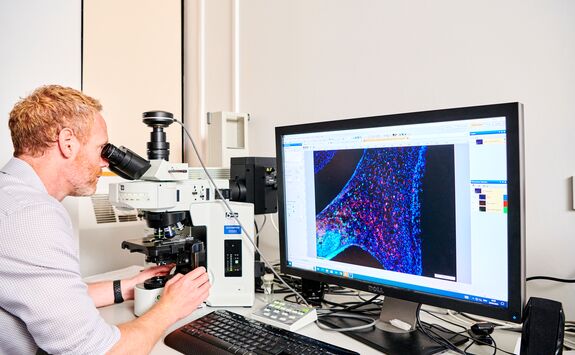PhD and Doctoral Study
Have the opportunity to become an expert in your field and make a real impact with your research.
Types of courses
You might be considering the difference between a doctorate and a PhD, and if there are any other study options.
In some areas of study, you can decide between a professional doctorate and a PhD. For example, you could earn a PhD in Education or a Doctor of Education (EdD). At Newcastle, we offer three types of doctoral study: PhDs, Integrated PhDs (IPhDs) and Professional doctorates. Find out what each one means, below.
PhDs at Newcastle
A Doctor of Philosophy (PhD) concentrates on original research that contributes to the knowledge of your subject. Your research will enable you to become an expert in your chosen topic. It requires a significant time commitment, usually three years full time.
You'll develop your project with help from an academic supervisor or team of supervisors. This could be theoretical or involve working with an industrial partner to develop new products. It depends on your subject and research interests.
To complete a PhD you will produce a piece of work (80,000 – 100,000 words) in the form of a supervised thesis. It should show evidence of originality and be suitable for publication.
You'll attend research training sessions and carry out independent research. You'll receive advice and supervision from a designated academic team.
PhDs are awarded in all subject areas. For professionally qualified doctors, an MD (Doctor of Medicine) is awarded.
Integrated PhDs at Newcastle
Our Integrated PhDs (IPhDs) address changes in the knowledge and skills demanded of PhD graduates. They are flexible, practical programmes, which combine advanced training in research skills with original research.
Each IPhD contains:
- a significant and tailored taught component
- an annual assessment
- a research project written up as a thesis
The taught component is the main difference between the IPhD and a standard PhD programme.
Lasting from three to four years full time, some IPhDs can be taken part-time over a longer period.
IPhDs are intended for middle or senior level managers working in public or private sector organisations. A broad and advanced knowledge base is required, as well as an understanding of disciplinary enquiry.
Integrated PhDs at Newcastle include:
- Computer Science
- Educational and Applied Linguistics
- Linguistics and English Language
- Phonetics and Phonology
Professional doctorates
Professional doctorates are different from other doctoral awards. They fulfil the formal training required for particular professions.
They are practical programmes combining original research with taught modules and work placements. The balance between these components varies depending on the requirements of the profession.
The main difference between a professional doctorate and a PhD is the focus on work-based practice. This is contrast to research in an academic context. Your research project will be informed by your professional practice.
Professional doctorates at Newcastle include:

